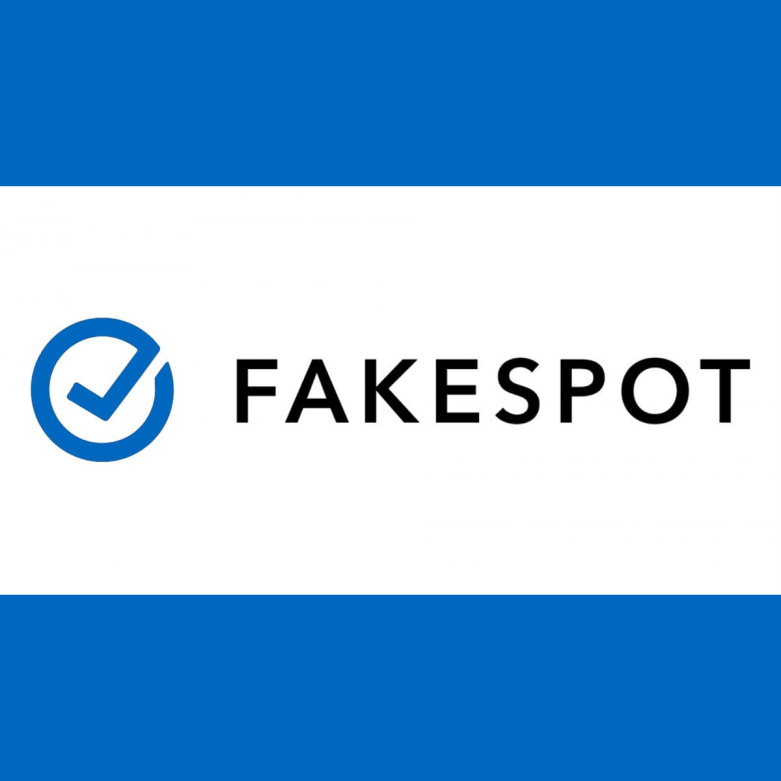Reviewing the Reviews: Fakespot
These days it can be hard to know who to trust. You, a prospective buyer, but a keen one, never just read a product’s details. You go to the reviews. You dig in, mining for information the seller won’t share, and you peruse the shiny facts laid out by the shoppers that came before you.
But this is the wild west, friends, and just when you think you’ve made out like a bandit, you’re liable to find yourself on the line for $19.99 plus three bucks for shipping.
It’s hard to trust anyone, is what I’m saying. Reviews might not be all they seem, nothing but a charade, a façade, a fake Rock Ridge, luring you in to make a fool of yourself.
Well, maybe not anymore. Maybe not with Fakespot in your holster.
Da Heck is that?
Fakespot? Well, it’s nothing to do with continuing this wild west analogy, much to the chagrin of the writer, but that’s probably to your benefit.
Fakespot is a browser extension (for Chrome/Firefox), a standalone app (Apple/Android), and a search bar available on Fakespot.com, which tasks itself with running the numbers on the reviews of various shopping websites.
Similar to Review Meta, Fakespot knows that some sellers artificially boost their reviews, through the use of bots or review incentives, leading to a dishonest review score and misleading testimonials. So Fakespot sifts through, leaving you with only the most trustworthy and useful reviews.
So Where Can it Help Me?
At the time of writing, Fakespot currently supports analysis of the following online marketplaces: amazon.com, amazon.co.uk, amazon.ca, amazon.com.au, amazon.in, amazon.fr, amazon.es, amazon.it, amazon.de, amazon.co.jp, walmart.com, yelp.com, tripadvisor.com, steam.com, sephora.com, shopify.com, bestbuy.com.
As you can see, their attention is largely devoted to Amazon (around the world), but it’s not difficult to argue that the attention is appropriate; Amazon is where most people do their online shopping.
Unfortunately, I haven’t found many under the hood details as to how this is all run. Here is what they write on their FAQ:
We use artificial intelligence that has been trained to pick up on patterns. The more data that flows into the system, the better the system gets at the detecting fake and unreliable content. Our algorithms run through multiple tests to determine if a review is authentic or not.
We do not reveal any additional information about our methods for detecting fake and unreliable content because we want to help protect consumers and prevent fake and unreliable reviews from avoiding detection by Fakespot.
Fakespot touts themselves as a data analytics company, so one would imagine these processes are similar to those of Review Meta, e.g. searching for repeated phrases in reviews, searching for verified purchases, searching for one-time reviews, short reviews, and so on and so forth, using the patterns they see to draw conclusions.
Okay, How Can it Help Me?
Assuming you shop at any of the aforementioned sites, Fakespot can help you determine where your dollar should be spent, by offering you a handful of analyses (with the extension or the app; the Analyzer on Fakespot.com is feature-limited).
Those features include:
Filtering by Review Legitimacy - Instead of sorting by 1-5 stars, you sort an Amazon results page based on the quality of each item’s reviews, and you can choose to filter out products with too many fake reviews.
Fake Review Protection - Analyze a product’s reviews from its listing to get a letter grade representing the quality of its reviews.
Here’s what they say about those letter grades:
Fakespot only analyzes product and business reviews to determine how reliable they are. We provide an easy to understand Fakespot Review Grade to show whether or not the reviews can be trusted:
A and B: Reviews are reliable
C: Mix of reliable and unreliable reviews
D and F: Insufficient reliable reviewsWe also give a grade to the company, which is the average of all of their products’ Fakespot Review Grades. We do not give an opinion on the quality of the product, service, or company. We only give our opinion on the reliability of online consumer reviews.
Advanced Seller Protection - Get a warning on the page if a seller has been deemed unreliable, and have Fakespot suggest alternative sellers.
Best Review Summary - Have Fakespot choose review Highlights, filtering out less helpful reviews and serving you the best bits of the best reviews.
In Review
We at Review Party Dot Com know well the meaning and purpose of reviews, and it warms us to know that Fakespot is out there fighting for the average consumer who so rightly is putting their trust in their fellow users’ reviews.
However, this is the wild west, and it’s good practice to be a bit paranoid. We’re not being paid by Fakespot to write any of this, but someone must be paying their bills. Who’s to say that the alternatives they suggest to you aren’t partners in some way? They must get paid some way, but perhaps it is not insidious.
Moving on, we must mention the reviews for Fakespot itself. On their site, they list only Five Star reviews. That’s fine. Most businesses would.
However, things aren’t so rosy elsewhere.
On both the Apple App Store and Google Play, they have a solid 3 out of 5 (46 and 366 reviews, respectively), though it appears the developers are responsive on Apple. On the Google Chrome Extension store they have a 3.7 out of 5 (525 reviews), and a 5.0 from a whopping 8 reviews on the Firefox add-ons page.
Moral of the story, the reviewers have spoken, the browser versions are better. Unless there are fake reviews of the review analyzing apps, which is a little too review recursive for us.
Good luck, stay safe, and happy shopping!

